The Greatest Coaches in College Football History

From all-time legends to legends-in-the-making, these 10 college football coaches have dominated the sidelines on Saturday's in the fall, winning championships, breaking records and influencing in the overall game in more ways than one. In honor of the 150th anniversary of college football, here are the greatest coaches in the history of the sport.
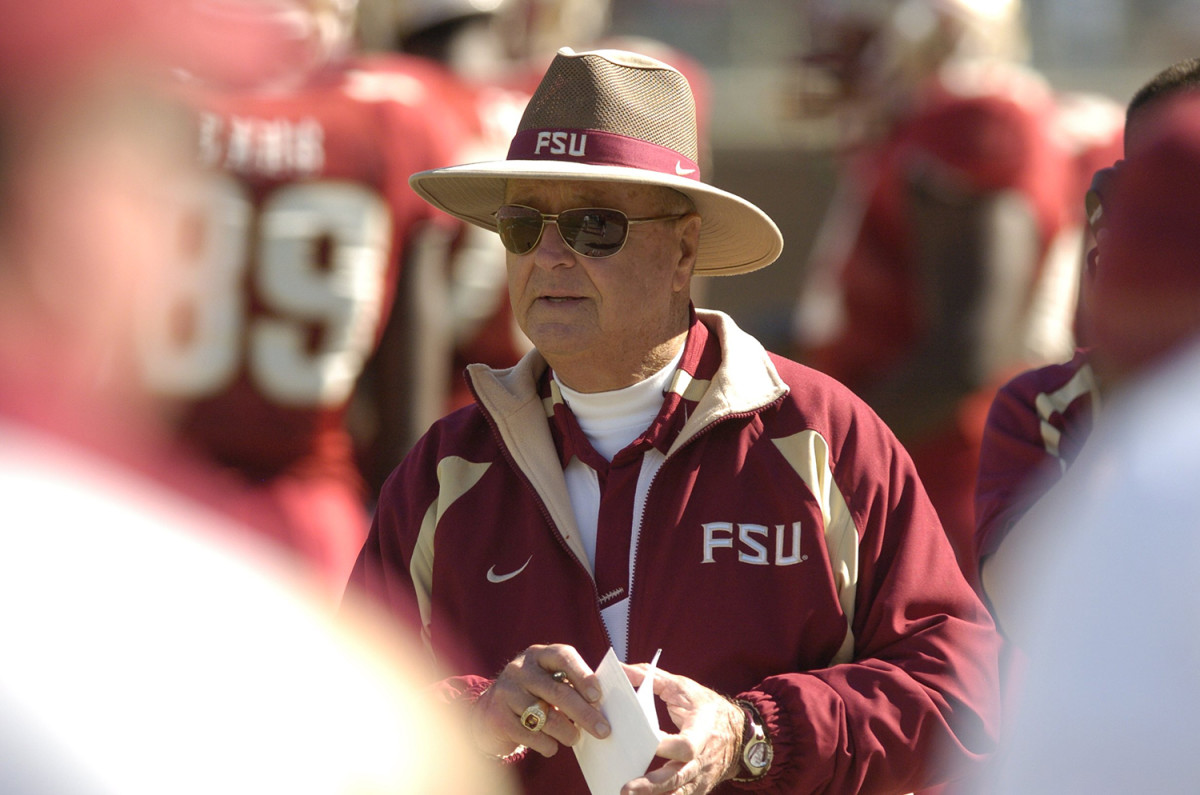
10. Bobby Bowden
Florida State didn’t have a national profile until Bowden came along. The program began to rise in 1987 when the Seminoles went on a streak of earning 14 consecutive AP top-five finishes, which included a 152-19-1 record and two national championships over that span. It was a dominant time for FSU football, with star players like Heisman Trophy winners Charlie Ward and Chris Weinke coming out of the program. Momentum eventually slowed when Florida State lost the 2000 BCS championship game to Oklahoma, but Bowden didn’t stop coaching until he was 80 years old.
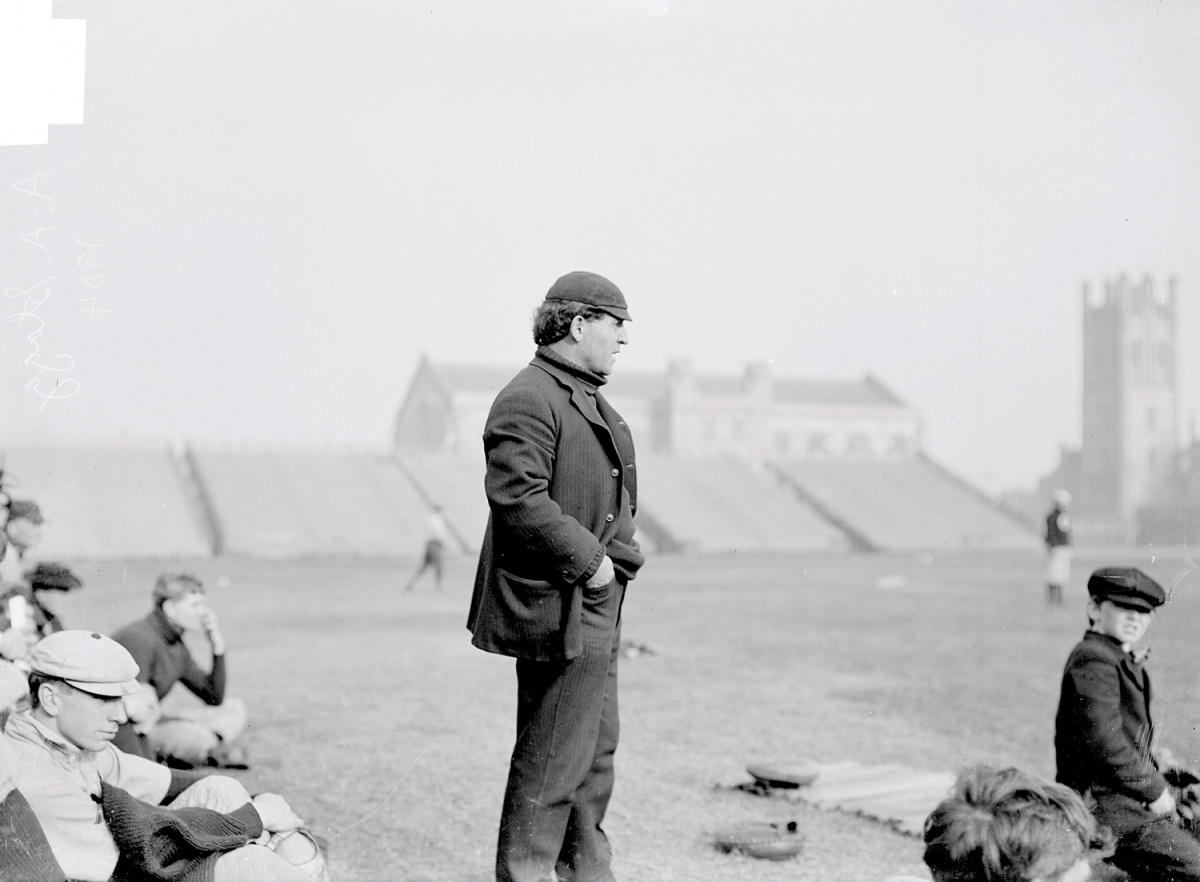
9. Amos Alonzo Stagg
Stagg, who lived to be 102, was one of the most influential people in college football’s history. A great innovator of the game, Stagg was the head football coach at the University of Chicago from 1892-1932 where he compiled a record of 227-112-26 and led the program to seven Big Ten titles. After graduating from Yale, his coaching career began at a YMCA in Massachusetts, which is now Springfield College. There, he organized the school’s first ever football team, which happened to include the inventor of basketball, James Naismith. Stagg, though, is best known for having his fingerprints all over college football, from tackling dummies to the onside kick to the Statue of Liberty, to something as simple as uniform numbers.
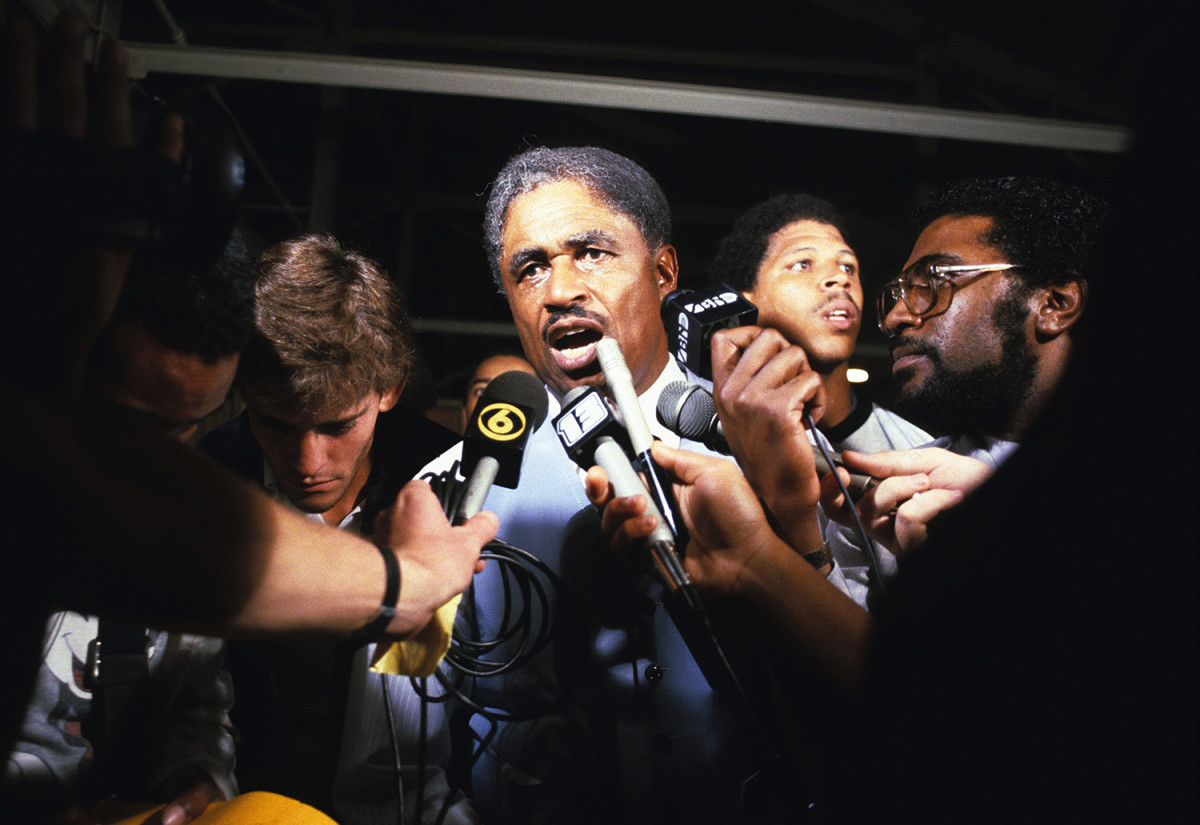
8. Eddie Robinson
In 55 seasons as the head football coach at Grambling State, Robinson went 408-165-15 and mentored tons of players—more than 200 of which went onto play in the NFL. Most importantly, however, was his work off the field as he helped bring racial awareness to a segregated southern Louisiana. Robinson made Grambling famous through his success in coaching, which ultimately helped build the school from a small all-black college to a predominantly black university with 5,000 students.
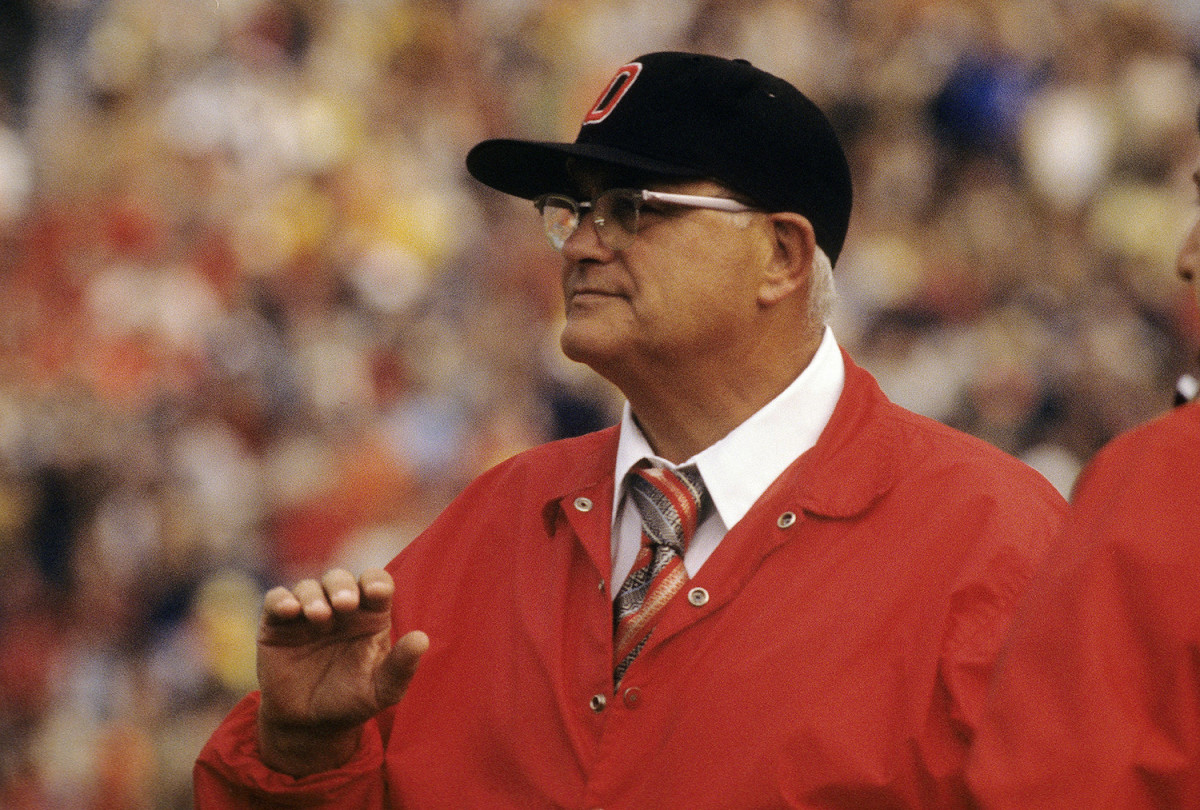
7. Woody Hayes
Hayes will forever be the face of Ohio State football. In 28 years in Columbus—the longest tenure of any Buckeyes football coach—Hayes won five national championships, 13 Big Ten titles and went 16-11-1 against archrival Michigan. He also coached running back Archie Griffin, who remains the only two-time Heisman Trophy winner. His legacy, though, is somewhat tarnished for how his career ended. On Dec. 30, 1978, OSU fired Hayes after he struck a Clemson player who intercepted a pass late in the fourth quarter of the Gator Bowl. He had also verbally assaulted a referee and punched one of his own players who tried to intervene.
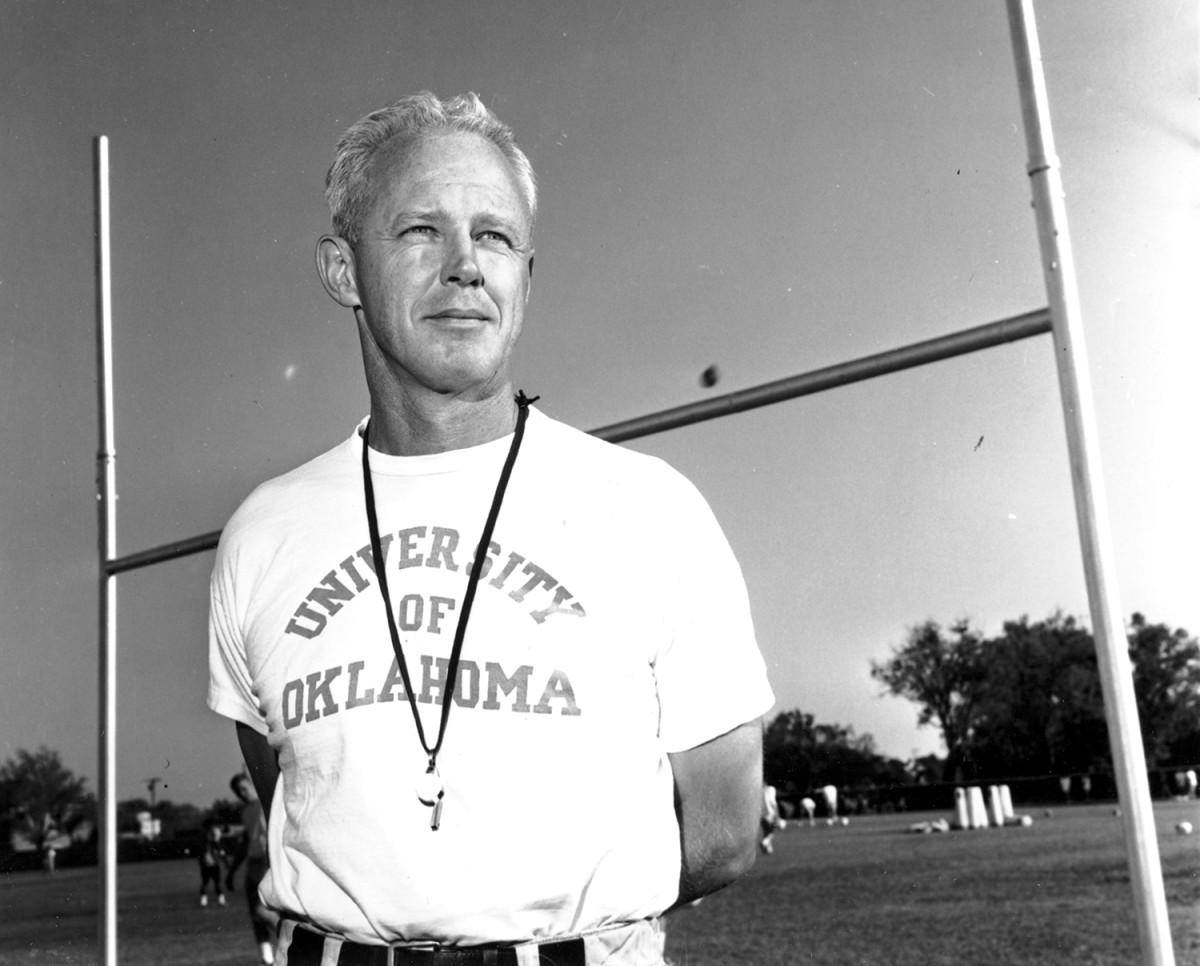
6. Bud Wilkinson
Wilkinson turned Oklahoma into a national power. Named head coach at 31 years old, he proved himself quickly by taking his first three Sooners teams to the Sugar Bowl. Under Wilkinson’s leadership, OU won a record 47 consecutive games from 1953-57, a streak that ultimately ended with a 7-0 loss to Notre Dame on Nov. 16, 1957. In 17 short seasons, Wilkinson’s teams won three national championships, 14 Big 8 titles and had four undefeated seasons.
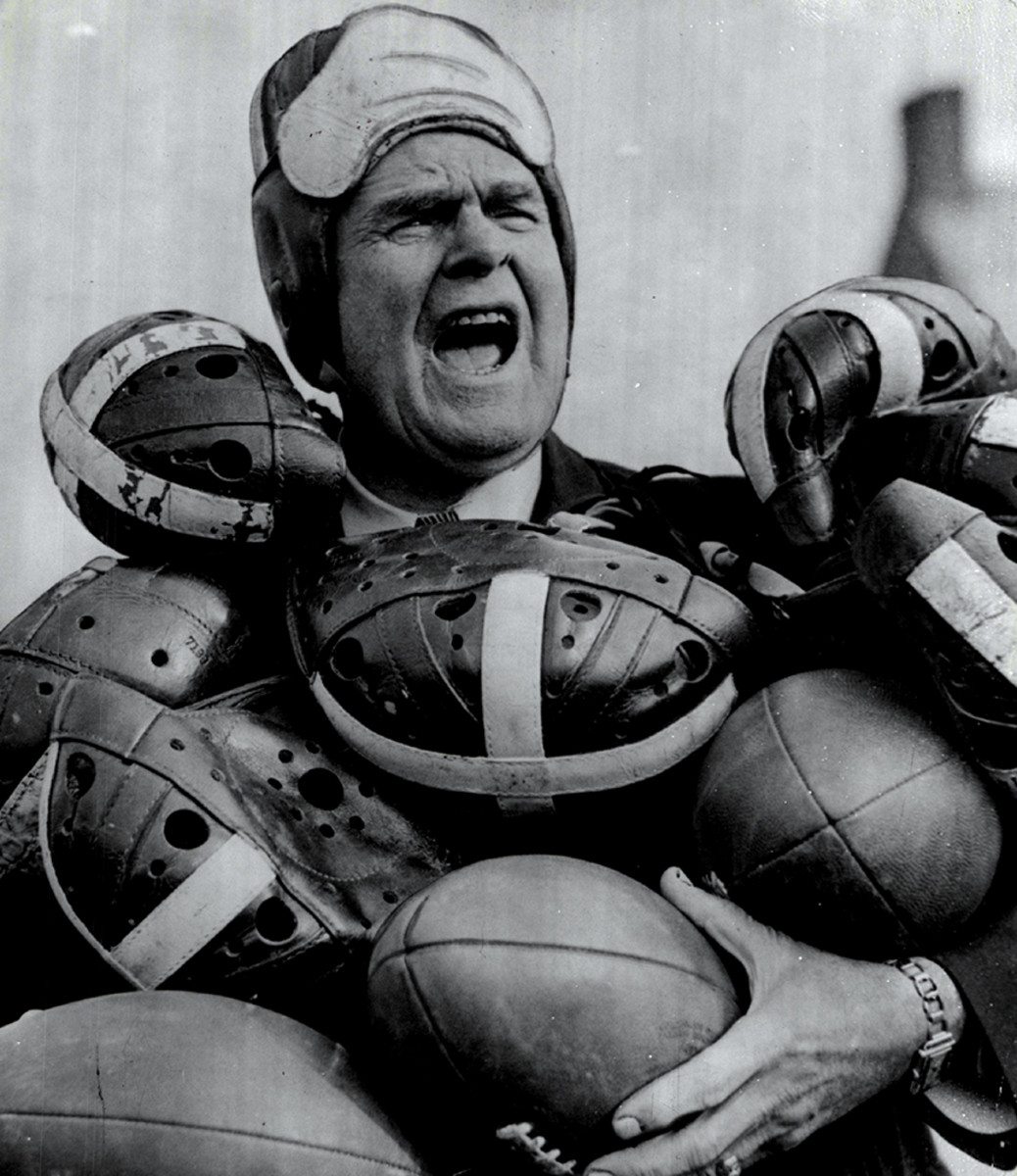
5. Pop Warner
His name is mostly associated with youth football nowadays, but Glenn Scobey Warner had a long and successful coaching career. Warner coached at seven schools from the East Coast to the West Coast, from Pittsburgh to Stanford, Temple to Iowa State. His résumé includes four national championships (three at Pitt, one at Stanford), three Rose Bowl appearances, and he coached some of the sport’s most famous players like Jim Thorpe. He was a strategist and innovator, using unique formations that included tons of misdirection plays, and he remains a major influencer on the sport to this day.
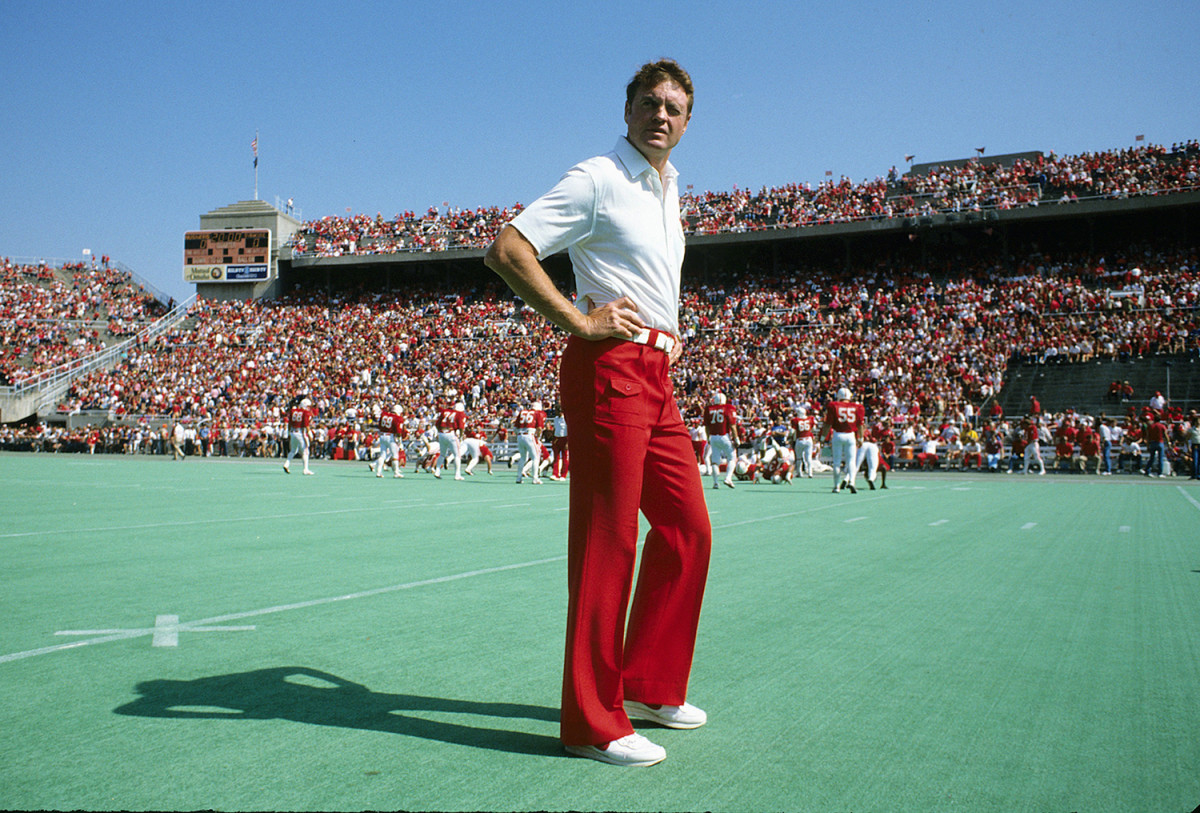
4. Tom Osborne
Somehow in 25 years at Nebraska, Osbourne never coached a team that finished the season unranked. That includes the 12 that won Big 8 titles and the three that won national championships. Yes, he had a scary-good option attack and unstoppable players like quarterback Tommy Frazier in his arsenal, but he made his mark by forging one of the greatest programs in college football history.
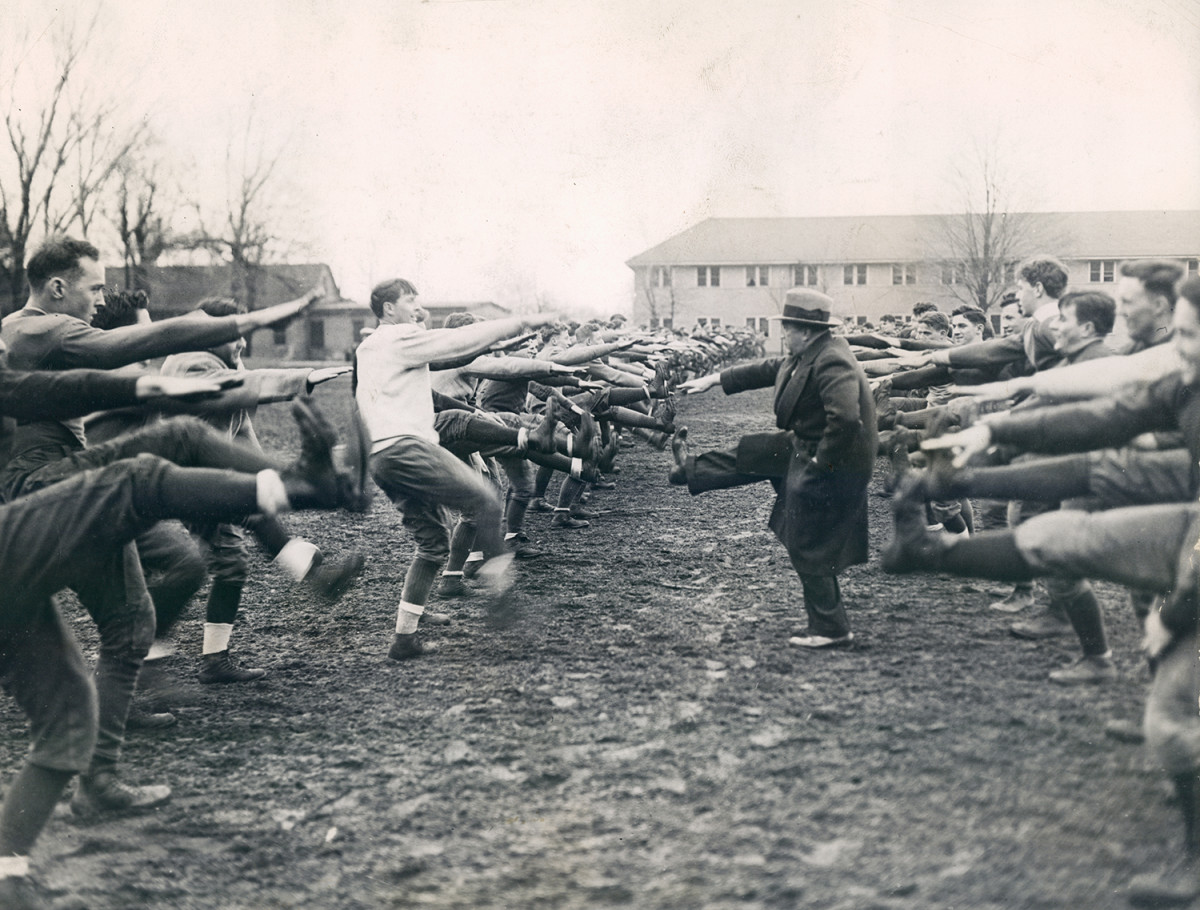
3. Knute Rockne
Rockne didn't just transform Notre Dame, he transformed college football. Famous for helping popularize the forward pass as a player, Rockne was named Fighting Irish head coach in 1918 and quickly turned the program into a brand name. In 13 years at Notre Dame, he won three national titles, only lost 12 games, and introduced the Irish to a national schedule by adding formidable opponents like Army, Penn State, Navy and USC. His life was cut short when he died in a plane crash in 1931, but his legendary status and impact live on forever—not just in South Bend, but everywhere.
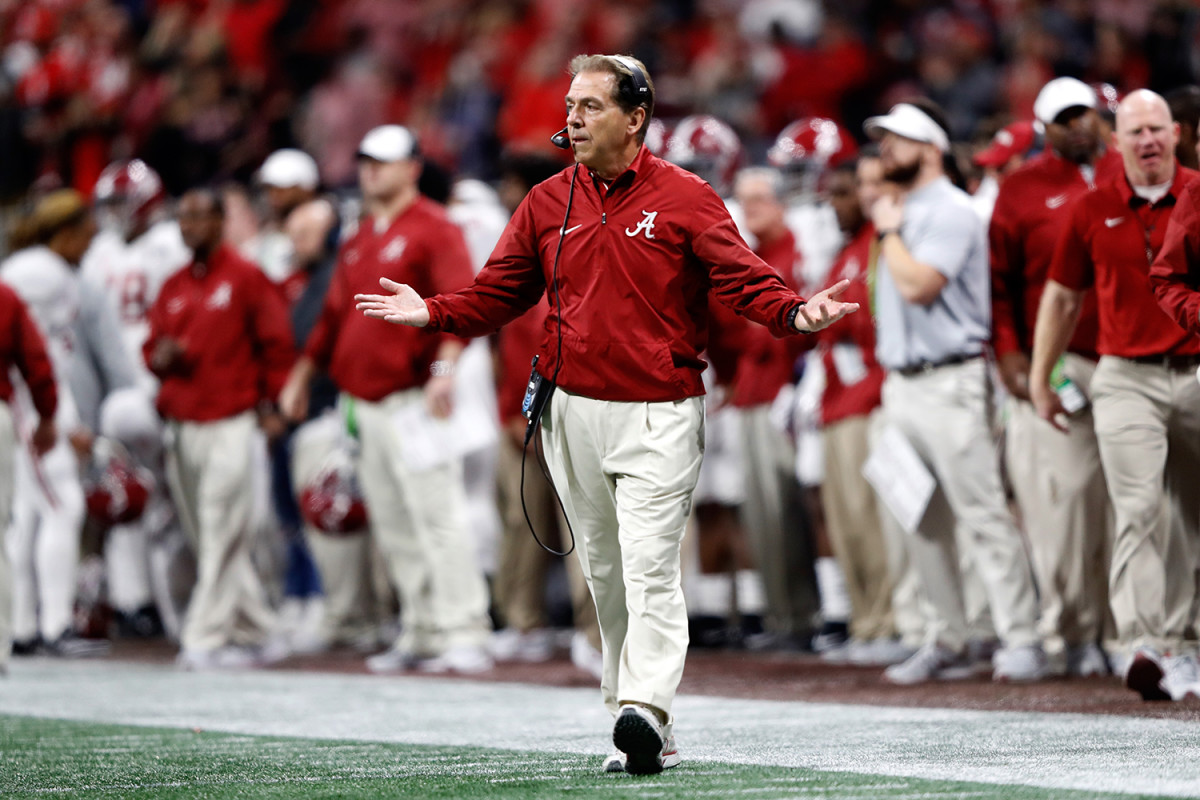
2. Nick Saban
Alabama built him a statue 15 months after winning his first national title with the program, and Saban has become even more legendary since. Entering his 12th season with the Crimson Tide, he’s led the program to five national championships, six SEC titles, and produced two Heisman winners while developing some of college football’s greatest defenses of all time and an unmatched level of consistency and dominance. The worst part for the competition? At 67 years old, retirement isn’t on his radar.
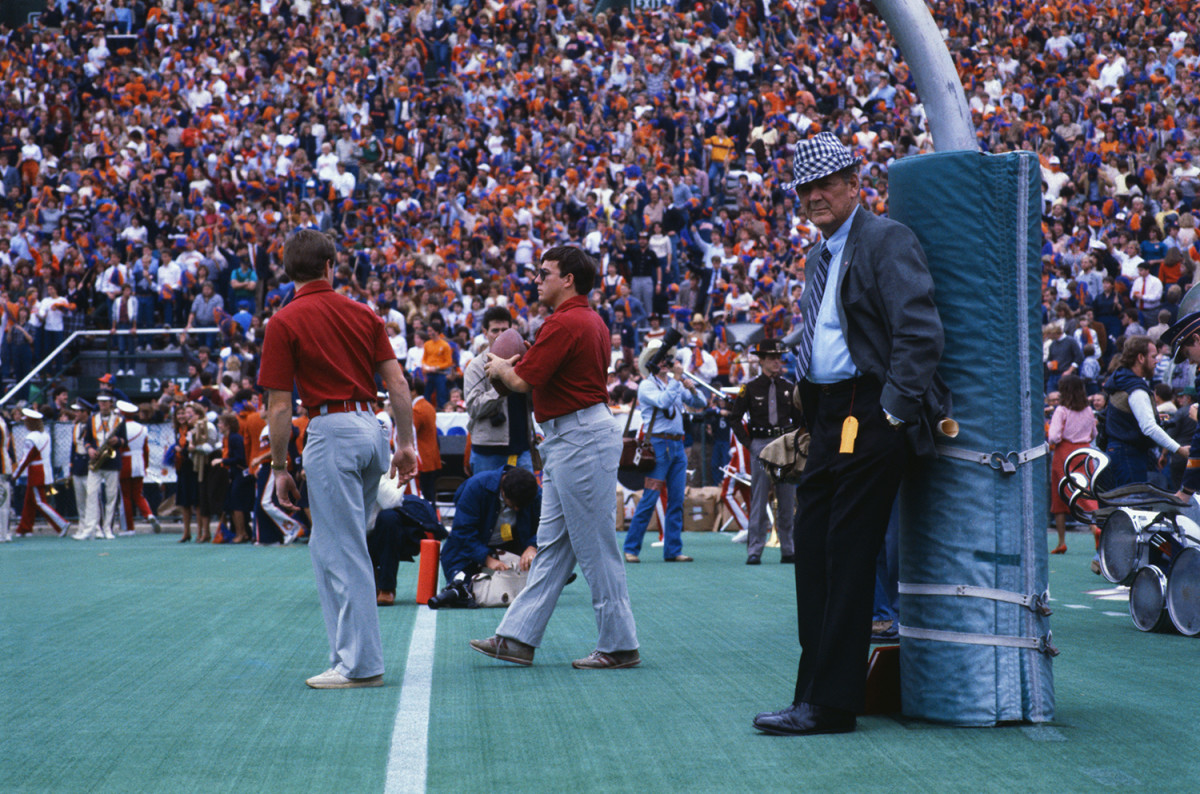
1. Bear Bryant
If only one coach could be synonymous with college football until the end of time, it would be the near-mythical, charismatic, great Paul “Bear” Bryant. As the story goes, Bear earned his nickname by literally wrestling a bear at a carnival when he was a teenager. After playing for the Crimson Tide and head coaching stints at Maryland, Kentucky and Texas A&M, he made his mark back at Bama where he won six national championships, 13 SEC titles and went 35-13-2 against rivals Auburn and Tennessee.
